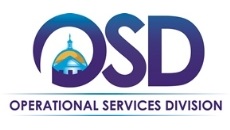- Operational Services Division
The Department of Developmental Services (DDS) has been a pioneer in Massachusetts’ transition to electric vehicles, exceeding state targets and embracing a greener future for its fleet. This journey began amidst challenges, including an aging fleet, supply chain disruptions caused by the pandemic, and the daunting task of replacing hundreds of vehicles.
“The DDS fleet is well past its prime. Many vehicles are more than a decade old, leading to increased maintenance costs and downtime,” stated Scott McCarthy, DDS Fleet Manager. The arrival of Executive Order 594, which mandated the transition to electric vehicles for the Executive Branch, added another layer of complexity.
Overcoming Obstacles
Initial reactions to the switch were mixed. Concerns arose about range anxiety, charging infrastructure, and the availability of suitable electric vehicles, particularly for specialized needs like wheelchair accessibility. “There definitely was some hesitancy,” Scott admits. “But the reality was, we needed to modernize our fleet, and increasing our share of electric vehicles is going to play a large part in that effort.”
Despite initial anxieties among drivers regarding charging infrastructure and range, DDS surpassed the 2025 Zero Emission Vehicles (ZEV) adoption criteria of 5%, achieving a 12.6% adoption rate. The transition has not been without its hurdles. Early challenges included limited charging infrastructure and the scarcity of electric vehicle models suitable for DDS’ specific needs, such as wheelchair vans. However, the agency overcame these obstacles through strategic planning and innovative solutions.
DDS secured funding through grants from the Leading by Example (LBE) program and the Department of Energy Resources (DOER), enabling the installation of charging stations at various locations across the state. The agency also leveraged partnerships with the Executive Office of Energy and Environmental Affairs (EEA) and the Operational Services Division’s Office of Vehicle Management (OVM) to streamline the procurement and deployment of electric vehicles through the Leased Electric Vehicle Inventory (LEVI) program.
“We're grateful for the support we’ve received from the state,” Scott emphasizes. “The funding and resources provided have been instrumental in our success.”
Today, DDS is well on its way to exceeding the state's 2030 electric vehicle targets. With a growing fleet of electric vehicles and a commitment to sustainable transportation, the agency is setting an example for other state entities and demonstrating the feasibility of transitioning to a greener future.
“The Office of Vehicle Management extends our sincere thanks to the Department of Developmental Services for their exemplary leadership in embracing electric vehicles. DDS not only exceeded the Commonwealth’s FY25 state targets, but they also demonstrated a remarkable commitment to sustainability and innovation,” said Vincent Micozzi, Director of Fleet Policy and Administration, OVM.
“Their proactive approach to overcoming challenges, securing funding, and partnering with key stakeholders within the Commonwealth serves as a model for other OVM-managed agencies. We hope that DDS’ success will inspire others as they work through their individual electrification journeys, and we look forward to continuing our collaborative efforts to accelerate the adoption of electric vehicles across the Commonwealth,” Vincent continued.
Looking Ahead
DDS continues to refine its electric vehicle strategy, focusing on:
- Expanding charging infrastructure: Installing more charging stations at agency garaging locations to ensure adequate charging capacity for the growing fleet.
- Optimizing vehicle selection: Identifying and procuring electric vehicles that best suit the agency’s diverse transportation needs, including wheelchair vans, minivans, and maintenance vehicles.
- Educating staff: Providing training and resources to staff related to the operation and maintenance of electric vehicles is important. As EVs are still new to the state, DDS is working to improve their training and resource offerings, taking recommendations from vehicle manufacturers, OVM, and Guidehouse, the state’s fleet electrification consultant.
- Monitoring and evaluating performance: Scott notes, “Our first task is to employ EVs in roles where we’re setting them up for success, ensuring that we’re always giving our staff the tools they need to deliver an excellent quality of care for the individuals we serve.” Tracking key metrics, such as energy consumption, charging costs, and vehicle performance to continuously improve the agency's electric vehicle program is a future goal.
“I’ve been active. We have orders pending for more than 30 ZEVs, including 21 BEVs (Battery Electric Vehicles) and 16 PHEVs (Plug-in Hybrid Electric Vehicles),” Scott stated. “Once those vehicles are delivered, we will be at 21% ZEVs.” Scott believes that the transition to electric vehicles not only will benefit the environment, but it also will improve the agency’s overall efficiency and reduce operating costs. “This is a long-term investment,” he says, “but we believe it will pay dividends in terms of reduced emissions from both driving and idling, and lower maintenance costs.”
As DDS continues to lead the way in electric vehicle adoption, the agency serves as an inspiring example for other organizations seeking to embrace a more sustainable future.


